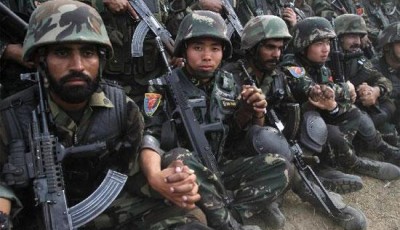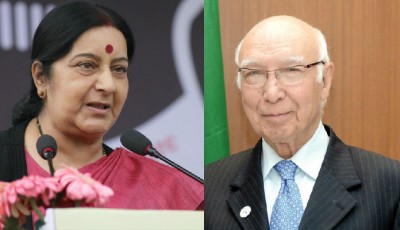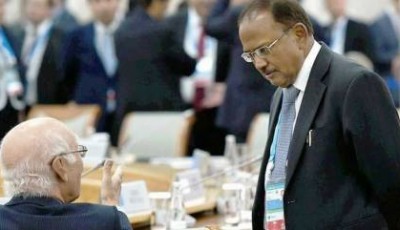Pakistan and China sign 20 cooperation agreements
Associated Press of Pakistan reported that the MoUs were signed in sectors of energy, communication, social services, agriculture, health, education and infrastructure at the Karamay Government Municipal Auditorium. Chinese officials have, however, said there was no concrete pledged figure, and projects would be taken forward on a case-by-case basis also taking into account the interest of Chinese companies and feasibility of projects that are still being studied.
Federal Minister for Planning and Development Ahsan Iqbal, senators Mushahid Hussain Syed, Hasil Bizenjo, Afrasiab Khattak, Nuzhat Saddiq, Nawabzada Saifullah Magsi and Balochistan Minister for Planning Hamid Khan Achakzai witnessed the MoUs ceremony. Chinese Ambassdor to Pakistan Sun Weidong also attended the concluding session and termed the meeting highly successful in furthering the Sino-Pak ties to new heights through CPEC.
The participants of the forums laid great emphasis on giving sustainability to the forum in the days to come and decided to make it an annual feature.
The 3,000-km CPEC connecting Xinjiang with Pakistan’s Gwadar Port through PoK is stated to cost United States dollars 46 billion, the amount quoted by Pakistani officials when it was launched by President Xi Jinping during his visit to Islamabad in April.
The Karamay Manifesto indicated that China and Pakistan will conduct the CPEC forum regularly.
It praised the significance of the Belt and Road Initiative and 21st Century Maritime Silk Road project for the political trust, economic cooperation and cultural exchanges between China and Pakistan.
“I assure you on behalf of Prime Minister Nawaz Sharif and government of Pakistan that we are committed in implementation of the CPEC in letter and spirit”.
The two-day event at Karamay featured topics including city-to-city and industrial cooperation, and youth exchange. “This is sure to bring everlasting prosperity to the region”, he added.
Saleem Mandviwala said that the Regional Cooperation and Development in Asia-Pacific region will also be an important agenda item of discussion.












